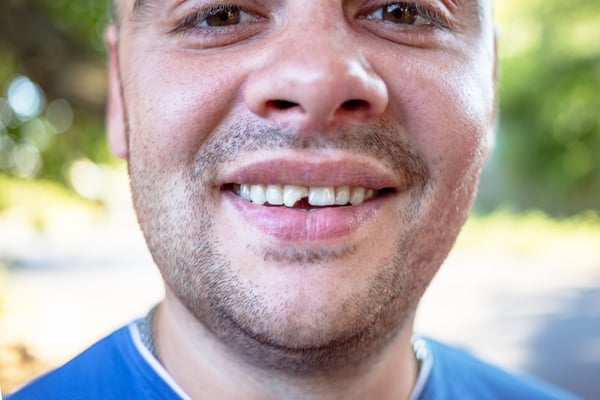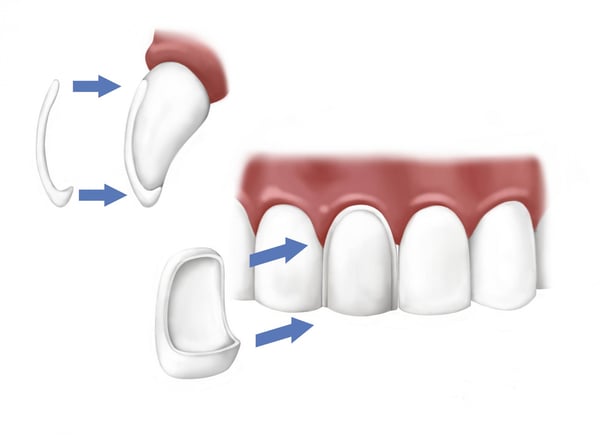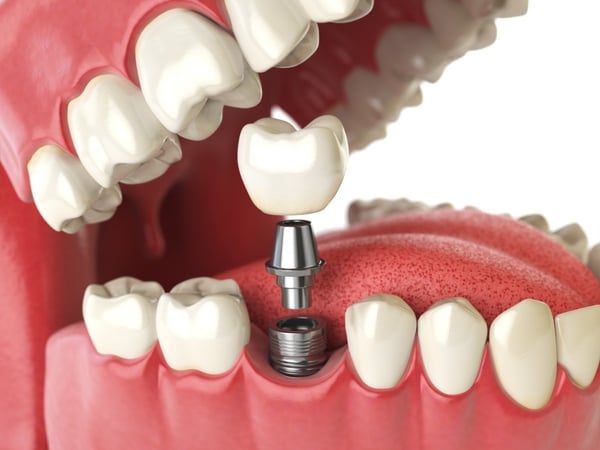
A chipped tooth can happen to anyone due to things such as using your teeth improperly (i.e. opening packaging and biting your nails), eating hard foods, or getting hit in the face or mouth. Chipped teeth can be unsightly but rarely cause health problems if treated promptly.
Consult with your dentist as soon as possible to avoid further problems such as infection after chipping a tooth to discuss what treatment is right for you.
The treatment you receive will be dependent on what kind of chip you have. There are many kinds of cracks and fractures that all require slightly different methods of repair. The treatment you receive will be dependent on what kind of chip you have.
- Minor cracks—A surface crack that only affect the enamel.
- Cracked tooth—Cracks that spread all the way down to the nerve; pieces remain in place.
- Chips—Piece of the tooth that breaks off.
- Broken cusp—Breaks affecting the pointed chewing surface of the teeth.
- Serious breaks—A break deep enough to expose the root, typically causing a fair amount of pain and bleeding.
- Split tooth—A vertical split in a tooth, causing it to break into two separate pieces.
- Vertical breaks or split root—Crack starting at the root of the tooth and spreading upward toward the chewing surface.
- Decay-induced break—Breaking or crumbling caused by cavities weakening the tooth from the inside out.
There are many types of treatment specific to the type of crack you are experiencing, categorized into restorative treatment and cosmetic treatment.
Restorative treatment is used to restore the function of the tooth and repair a chip that is harmful to an individual's health whereas cosmetic treatment is used to repair the look of the tooth. In some instances, both treatments may need to be utilized.
- Bonding: this type of treatment is generally used for small chips. Your dentist will shave down the jagged enamel around the break, then create a natural-looking extension made up of a composite material, fitting it over the broken area. This is then cured with a blue light and hardens instantly. Bonding can last up to ten years when taken care of properly and is generally undetectable to those who don't know the tooth has been repaired.
- Porcelain Veneers: veneers are porcelain covers over your tooth, providing a smooth and natural look. This treatment is used for more severe cosmetic issues that bonding will not effectively fix. One or many veneers can be placed if chips have occurred over several teeth.

- Crowns: crowns are similar to veneers but crowns cap over the entire tooth as opposed to veneers that only cover the front-facing part of the tooth. Crowns correct the tooth's shape and can prevent additional damage to an already damaged tooth. Crowns are typically restorative dental work used for painful chips.

- Dental Implants: if a tooth has cracked just before the surface of the gum-line, dental implants may be the best option for repair. Removing the tooth allows the space to heal, helping you avoid infections and future root canals. With dental implants, your dentist will add a metal post to the gum-line and install an artificial tooth that looks, feels, and functions like a real tooth.

When patients are proactive about treating chips, these dental problems rarely cause additional problems. Trusting your dentist and figuring out the repair option that best suits your needs is key in treating the issue as quickly and as pain-free as possible.
If you are unable to get to a dentist immediately after a chip, treat any pain you may be experiencing at home by taking over-the-counter pain medicine to bring down any swelling or discomfort.
Avoiding temperatures that sets off sensitivity is recommended if you have a crack or break that involves the pulp of the tooth. Brushing your teeth or rinsing with mouthwash or saltwater if possible is recommended to keep bacteria and infection at bay.
As with all treatments offered at Dr. Linger's office, sedation is available when repairing a chipped tooth. Contact us today to schedule your appointment and be on your way to a beautiful, healthy smile!



